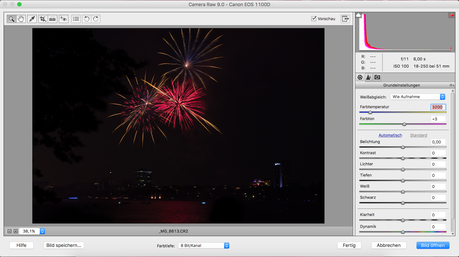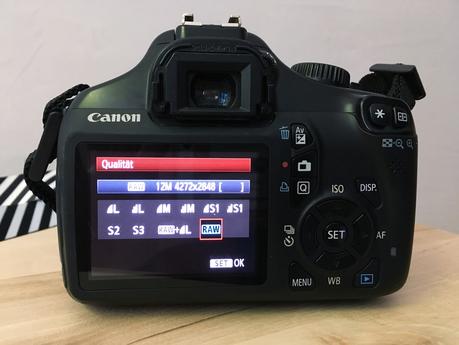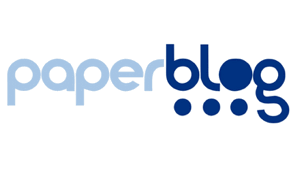D Im Leben eines jeden kleinen Fotografen kommt der eine Tag an dem er von diesem verrückten Bildformat hört "RAW". Und wie so oft in der Fotografie, scheint es, als würden alle wissen was RAW ist und als wäre JPEG schon längst dadurch ersetzt worden. Auch bei mir kam dieser Tag irgendwann und auch ich habe die Vorzüge des RAW Formats gelernt. Heute möchte ich diese Vorzüge mit euch teilen und außerdem noch die Vor- und Nachteile von JPEG und RAW mit euch erörtern. Im voraus die Anmerkung: Ich habe eine ganze Zeit lang in beiden Formaten gleichzeitig fotografiert, ich mochte es einfach dass meine Kamera sowohl ein RAW als auch ein JPEG Bild auf meiner Speicherkarte hinterlässt. Erst vorkurzem habe ich dann JPEG ganz gestrichen. Aber ich greife schon wieder zu viel vor, Bühne frei für die beiden Formate.
E In the life of every photographer there is this moment when he hears the first time about this fancy image format "RAW". And like so often in photography it's like everybody knew about it and like JPEG already got replaced by it. I also had this moment and learned the advantages of RAW. Today I want to share this advantages and also talk about the pros and cons of JPEG and RAW with you. First of all a little remark: for a really long time used both formats, because I really liked that my camera left a JPEG and a RAW picture on my card. But some time ago I canceled JPEG, but I'm anticipate too much. Raise the curtains for the two formats.


D JPEG Format
Bei JPEG handelt es sich um eine verlustbehaftete Kompression. Das heißt im Grunde, dass bei der Speicherung Daten verloren gehen. Das ist auch die ganze Kunst, weshalb .jpg Bilder so wenig Speicherplatz benötigen, ich könnte euch jetzt den Kompressionsalgorithmus erklären, aber ich glaube das ist an dieser Stelle einfach zu viel. Das einzige was ihr euch merken solltet ist: bei JPEG findet ein Verlust von Daten statt. Außerdem findet schon während dem Abspeichern eine erste Bearbeitung oder Korrektur der Bilder statt, Kontrast, Helligkeit, Sättigung und co. werden verändert.
Eine ganze Zeit lang fand ich, dass .jpg Bilder viel leichter zu verwalten sind, weil mein alter Laptop RAW nicht in der Vorschau anzeigen konnte. Jedesmal das Bild in Photoshop öffnen schon allein um auszumisten oder zu entscheiden, ob es etwas ist oder nicht war mir einfach zu blöd. Aber das und der wenige Speicherbedarf sind auch schon die einzigen Vorteile, die mir zu JPEG einfallen. Und ob diese für einen überwiegen muss jeder selbst bestimmen.
E JPEG Format
JPEG uses lossy data compression. At root that means that there is a loss of data while saving a picture in this format. That's by the way the whole thing why .jpg pictures need so few disk space but sadly a loss of data happens. Moreover while saving the picture on your memory card a first editing or correction happens, contrast, brightness, saturation and so on are changed.
At the beginning I thought that .jpg pictures are easier to manage, because my old laptop couldn't make a preview for RAW pictures and always open the picture in photoshop to look if it's nice or not seemed pretty inconvenient. But that and the little memory consumption are just the only advantages I could find for JPEG. If they are outweigh the disadvantages or not is everyones own choice.


D RAW Format
Was ist eigentlich RAW? Das RAW-Format speichert im Gegensatz zu JPEG die Rohdaten ohne Bearbeitung so wie der Kamerasensor sie liefert. Es gehen also keine Daten verloren, was auch erklärt, weshalb die Dateien so groß sind. Dieses Format hat einige Vorteile, zum Beispiel haben die Adobe Programme tolle RAW-Entwicklungseditoren. In diesen kann man Weißabgleich und Farben allgemein im Nachhinein noch wunderbar anpassen und auch so kann man das Bild viel besser und vor allem mehrmals entwickeln und bearbeiten. Außerdem lässt sich aus RAW leicht ein JPEG Bild erzeugen.
E RAW Format
So what's RAW? The RAW-format saves the raw data without any editing. So there is no loos of data, what explains that the files are big. But this format has some really nice advantages, for example the Adobe programs have great RAW- development editors. With those you can change white balance and colors afterwards and you can develop and edit the pictures a lot better. Besides it's pretty easy to generate a JPEG picture out of RAW.


D Fazit
Ich kann euch RAW inzwischen nur ans Herz legen. Am Anfang hatte ich irgendwie zu viel "Respekt" vor diesem Format um umzusteigen, aber man gewöhnt sich sehr schnell daran. Inzwischen möchte ich dieses Format nicht mehr missen. Und wenn es mal Bilder sein sollen, für die JPEG als Format reicht kann man es schnell an der Kamera umstellen oder auch mithilfe eines Bildbearbeitungsprogramms umwandeln. Nur andersrum ist das eben nicht möglich, aus RAW wird schnell JPEG aber aus JPEG nie RAW. Man ist also irgendwo auch auf der sicheren Seite, wenn man einfach RAW benutzt.
Was sagt ihr dazu, in welchem Format speichert ihr eure Bilder?
E Conclusion
I can really recommend you to use RAW format for your pictures. When I first heard of it I had great "respect"of this format, but you will accustom pretty fast to it. Meanwhile I don't want to miss this format anymore. And when you do photos that don't need to be RAW format you can just switch the modus at the camera or do it with a editing program. Thats the great thing: you can always convert RAW into JPEG. The other way around that's not possible, so you keep out of harm's way if you use RAW.
What do you think: In which format do you save your pictures?




E In the life of every photographer there is this moment when he hears the first time about this fancy image format "RAW". And like so often in photography it's like everybody knew about it and like JPEG already got replaced by it. I also had this moment and learned the advantages of RAW. Today I want to share this advantages and also talk about the pros and cons of JPEG and RAW with you. First of all a little remark: for a really long time used both formats, because I really liked that my camera left a JPEG and a RAW picture on my card. But some time ago I canceled JPEG, but I'm anticipate too much. Raise the curtains for the two formats.


D JPEG Format
Bei JPEG handelt es sich um eine verlustbehaftete Kompression. Das heißt im Grunde, dass bei der Speicherung Daten verloren gehen. Das ist auch die ganze Kunst, weshalb .jpg Bilder so wenig Speicherplatz benötigen, ich könnte euch jetzt den Kompressionsalgorithmus erklären, aber ich glaube das ist an dieser Stelle einfach zu viel. Das einzige was ihr euch merken solltet ist: bei JPEG findet ein Verlust von Daten statt. Außerdem findet schon während dem Abspeichern eine erste Bearbeitung oder Korrektur der Bilder statt, Kontrast, Helligkeit, Sättigung und co. werden verändert.
Eine ganze Zeit lang fand ich, dass .jpg Bilder viel leichter zu verwalten sind, weil mein alter Laptop RAW nicht in der Vorschau anzeigen konnte. Jedesmal das Bild in Photoshop öffnen schon allein um auszumisten oder zu entscheiden, ob es etwas ist oder nicht war mir einfach zu blöd. Aber das und der wenige Speicherbedarf sind auch schon die einzigen Vorteile, die mir zu JPEG einfallen. Und ob diese für einen überwiegen muss jeder selbst bestimmen.
E JPEG Format
JPEG uses lossy data compression. At root that means that there is a loss of data while saving a picture in this format. That's by the way the whole thing why .jpg pictures need so few disk space but sadly a loss of data happens. Moreover while saving the picture on your memory card a first editing or correction happens, contrast, brightness, saturation and so on are changed.
At the beginning I thought that .jpg pictures are easier to manage, because my old laptop couldn't make a preview for RAW pictures and always open the picture in photoshop to look if it's nice or not seemed pretty inconvenient. But that and the little memory consumption are just the only advantages I could find for JPEG. If they are outweigh the disadvantages or not is everyones own choice.


D RAW Format
Was ist eigentlich RAW? Das RAW-Format speichert im Gegensatz zu JPEG die Rohdaten ohne Bearbeitung so wie der Kamerasensor sie liefert. Es gehen also keine Daten verloren, was auch erklärt, weshalb die Dateien so groß sind. Dieses Format hat einige Vorteile, zum Beispiel haben die Adobe Programme tolle RAW-Entwicklungseditoren. In diesen kann man Weißabgleich und Farben allgemein im Nachhinein noch wunderbar anpassen und auch so kann man das Bild viel besser und vor allem mehrmals entwickeln und bearbeiten. Außerdem lässt sich aus RAW leicht ein JPEG Bild erzeugen.
E RAW Format
So what's RAW? The RAW-format saves the raw data without any editing. So there is no loos of data, what explains that the files are big. But this format has some really nice advantages, for example the Adobe programs have great RAW- development editors. With those you can change white balance and colors afterwards and you can develop and edit the pictures a lot better. Besides it's pretty easy to generate a JPEG picture out of RAW.


D Fazit
Ich kann euch RAW inzwischen nur ans Herz legen. Am Anfang hatte ich irgendwie zu viel "Respekt" vor diesem Format um umzusteigen, aber man gewöhnt sich sehr schnell daran. Inzwischen möchte ich dieses Format nicht mehr missen. Und wenn es mal Bilder sein sollen, für die JPEG als Format reicht kann man es schnell an der Kamera umstellen oder auch mithilfe eines Bildbearbeitungsprogramms umwandeln. Nur andersrum ist das eben nicht möglich, aus RAW wird schnell JPEG aber aus JPEG nie RAW. Man ist also irgendwo auch auf der sicheren Seite, wenn man einfach RAW benutzt.
Was sagt ihr dazu, in welchem Format speichert ihr eure Bilder?
E Conclusion
I can really recommend you to use RAW format for your pictures. When I first heard of it I had great "respect"of this format, but you will accustom pretty fast to it. Meanwhile I don't want to miss this format anymore. And when you do photos that don't need to be RAW format you can just switch the modus at the camera or do it with a editing program. Thats the great thing: you can always convert RAW into JPEG. The other way around that's not possible, so you keep out of harm's way if you use RAW.
What do you think: In which format do you save your pictures?





